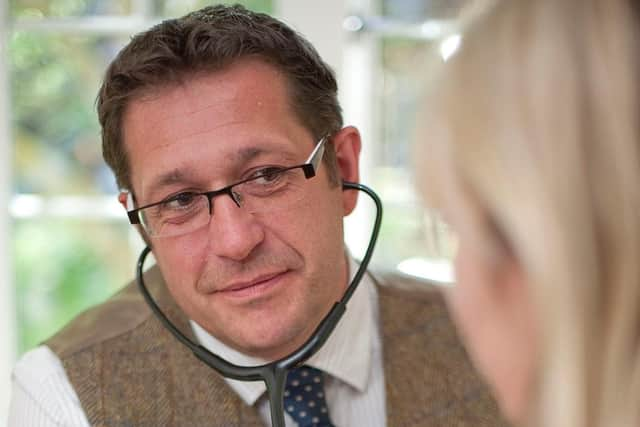Testing for coronavirus and what we currently know - advice from a doctor in the Warwick area
and live on Freeview channel 276
TESTING FOR CORONAVIRUS: WHAT WE CURRENTLY KNOW
Written by Dr Karl Braine
The issue of testing for COVID-19 has generated much media coverage and, it is fair to say, led to much confusion.


From a purely practical perspective, it is worth reiterating the types of tests involved - and the pitfalls.
Advertisement
Hide AdAdvertisement
Hide AdAntigen tests are throat or nasal swabs that are sent to a laboratory and analysed to see whether you currently have COVID-19, whether or not you are displaying symptoms. This is the testing currently conducted on hospital patients.
There are government plans to scale up this form of testing but, as has been widely reported, there are some current capacity issues.
Antibody tests looks for the body’s immune response to COVID-19 by measuring one or two different antibodies the immune system generates in response to any infection. This can take from a few days, but more usually a few weeks after infection, to develop.
It is currently unclear as to the best time to test for the antibodies. It is believed to be a minimum of 21 days after the start of any symptoms but may be longer.
Advertisement
Hide AdAdvertisement
Hide AdIt is also unclear how long the antibodies remain in the system. They may well disappear completely after time, and potentially within just a few weeks if you have had asymptomatic or mild disease.
As such, we do not yet know whether possessing antibodies affords protection to further exposure to the virus, in the medium or longer term.
In addition, there are reservations about using tests outside of a hospital setting - the main one being the high risk of reporting a false negative result.
We completely understand people will want to know if they’ve had the virus, perhaps after suffering symptoms or because they need to return to work.
Advertisement
Hide AdAdvertisement
Hide AdBut the test being offered is likely to be wholly unreliable at present – and, in addition, no ‘home testing’ kit is approved for UK usage. Anyone marketing such kits is acting illegally.
We’d advise people to be wary of private clinics offering any of these tests and contact your doctor if you have any concerns.
If you want to speak to a doctor about health issues, you can call Concierge Medical or visit www.conciergemedical.co.ukDr Karl Braine
Concierge Medical